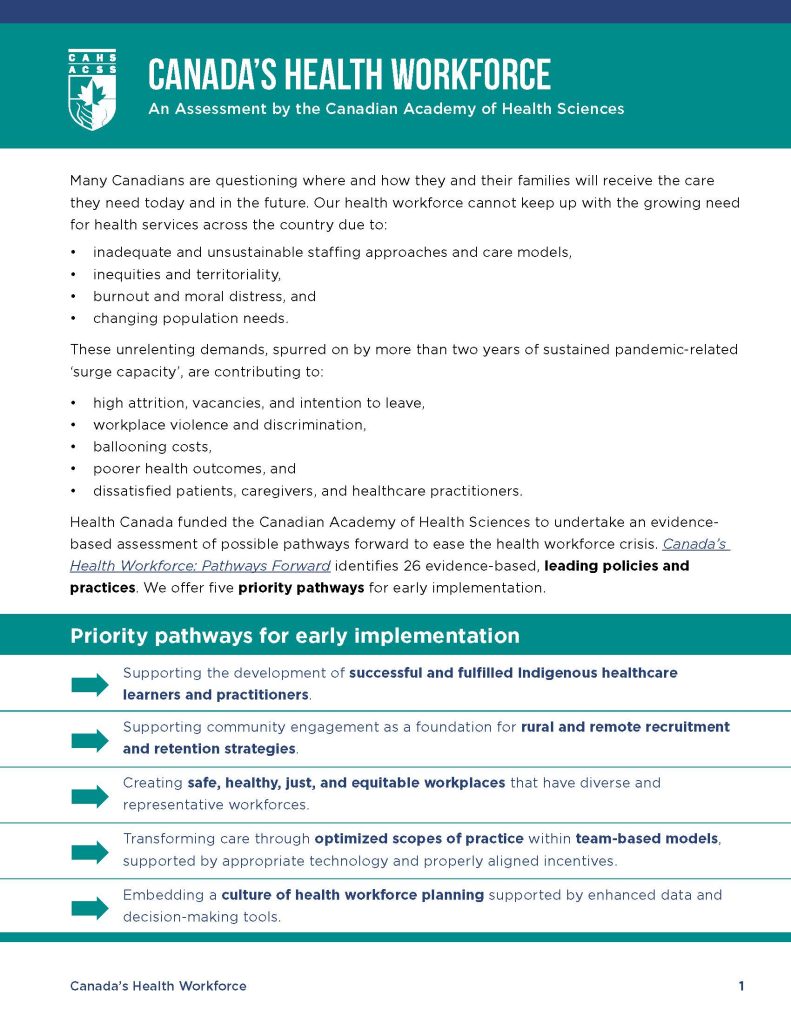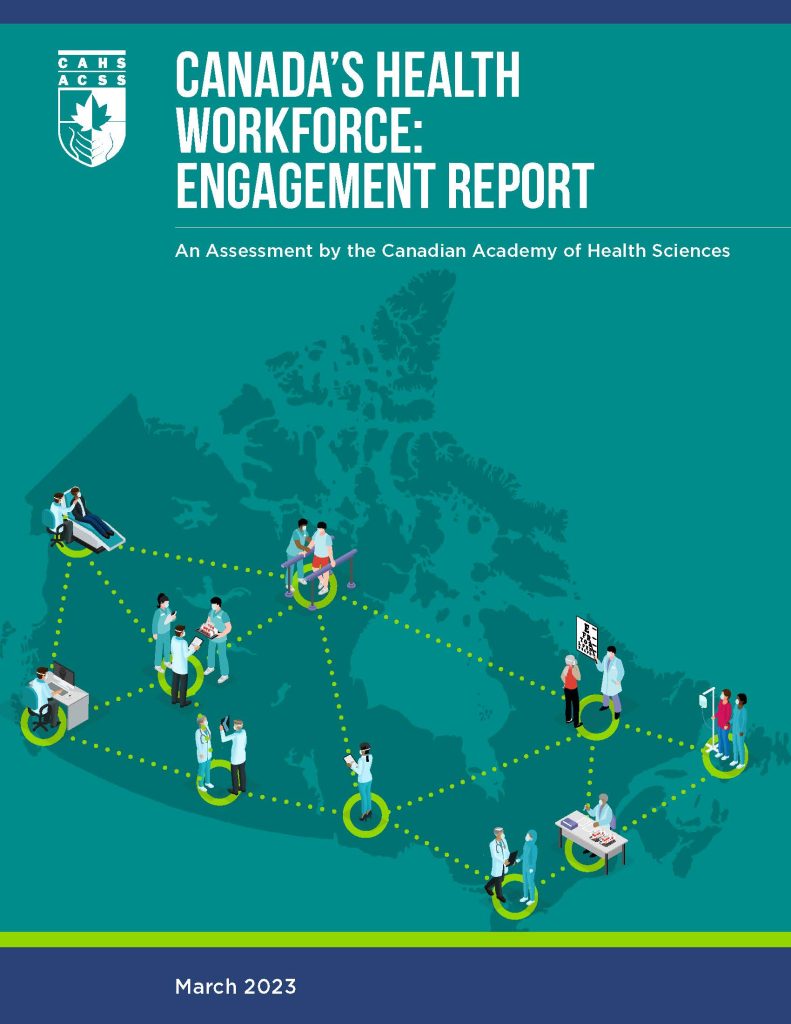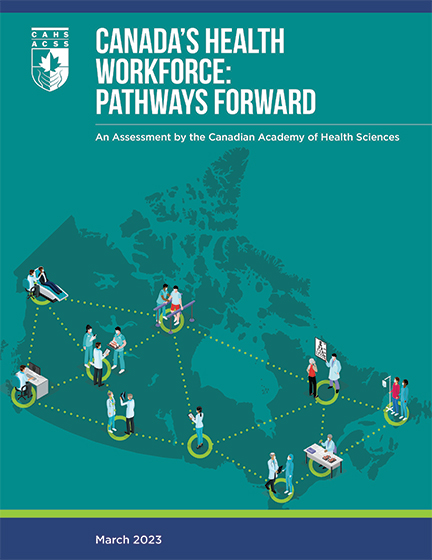
Press Release
FOR IMMEDIATE RELEASE
CAHS Releases Health Human Resources Assessment Report
Ottawa, April 4, 2023 – Today, the Canadian Academy of Health Sciences (CAHS) released its report on health human resources (HHR) in Canada. The report, titled “Canada’s Health Workforce: Pathways Forward”, provides key findings designed to inform stakeholders (including governments).
The report provides evidence-informed approaches to addressing the current challenges facing the Canadian health workforce.
The three overarching themes were identified:
- Support and retention,
- Deployment and service delivery,
- Planning and development.
To study these themes and respond to the questions asked by the sponsor, CAHS assembled an independent panel with three working groups of experts. In addition, a committee led by and composed of Indigenous health leaders contributed to the overall report and authored the section on Indigenous health workforce. Over 30 interdisciplinary clinical and academic health workforce experts contributed the diversity of perspectives needed to guide the overall work.
This assessment included the review of over 5,000 scientific articles and 250 policy documents and was informed by the participation of over 800 individuals representing 245 organizations. Organizations submitted over 100 documents to inform the assessment.
The CAHS wishes to thank the assessments co-chairs and acknowledge Health Canada who funded this work through a contribution agreement.
For further information, click here to see our reports:
- Backgrounder,
- Overview,
- Assessment report,
- Engagement report.
Or contact: Serge Buy, Chief Executive Officer, sbuy@cahs-acss.ca
About CAHS
Over 850 CAHS Fellows are drawn from all disciplines from Canada’s academia, health care and research institutes.
CAHS has completed assessments on key issues such as:
- Autism in Canada: Considerations for future public policy development
- Improving the quality of life and care of persons living with dementia and their caregivers
- Academic recognition of team sciences: how to optimize the Canadian academic system
- Improving access to oral health care for vulnerable people living in Canada
- Transforming care for Canadians with chronic health conditions
For a full list of our previously completed assessments, please click here.

Biographies
An Assessment Panel, Indigenous Health Workforce Committee, and three Working Groups (Deployment & Service Delivery, Support & Retention, and Planning & Development) provided leadership for this assessment.
Our Assessment and Scientific Affairs Committee appointed Marcia Anderson, Ivy Bourgeault, Luigi Lepanto, and Chris Simpson as co-chairs of this assessment and with their guidance, selected the members of the Assessment Panel and Working Groups. The selection criteria were based on expertise in various fields, credibility, and diversity. Diversity included, amongst other things, gender, age, ethnicity, and regional representation.

Assessment Panel
The Assessment Panel will work with the Working Groups to ensure that the HHR assessment will be based on a comprehensive review of current and emerging evidence by analyzing trends, best practices, and existing policies in Canada and across the globe.
Meet the Members:
 |
Marcia Anderson, MD, MPH, FRCPC Co-Chair, Assessment PanelDr. Marcia Anderson is Cree-Anishinaabe and grew up in the North End of Winnipeg. Her family roots go to Peguis First Nation and Norway House Cree Nation in Manitoba. She practices both Internal Medicine and Public Health as a Medical Officer of Health with Indigenous Services Canada – Manitoba Region. She is the Vice-Dean, Indigenous Health, Social Justice and Anti-Racism and the Executive Director of Indigenous Academic Affairs in the Ongomiizwin Indigenous Institute of Health and Healing, Rady Faculty of Health Sciences, University of Manitoba. She serves as the Chair of the Indigenous Health Network of the Association of Faculties of Medicine of Canada and the Chair of the National Consortium for Indigenous Medical Education. She was recognized for her contributions to Indigenous people’s health with a National Aboriginal Achievement Award in March 2011, and was named as one of the 100 most powerful women in Canada by the Women’s Executive Network in 2018 and 2022. In 2021, she received the Royal College of Physicians and Surgeons Dr. Thomas Dignan Indigenous Health Award, and in 2022 was named the Doctors Manitoba Physician of the Year and one of Canada’s Top 100 Most Powerful Women in the Community Impact category. |
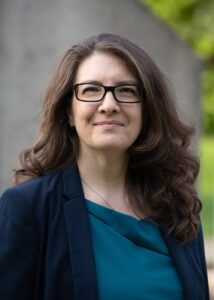 |
Ivy Bourgeault, PhD, FCAHS Co-Chair, Assessment Panel Ivy Bourgeault is recognized nationally and internationally for her research and scholarship on health workforce policy, health-worker migration, midwifery, and maternity care. She holds a University of Ottawa Research Chair in Gender, Diversity and the Professions, having previously held the CIHR Chair in Gender, Work and Health Human Resources, the CIHR and Health Canada Research Chair in Health Human Resources Policy. She co-founded the bilingual Canadian Health Workforce Network and the Canadian Society for the Sociology of Health. Her dedication to effective knowledge exchange is evidenced by a number of consultations to Provincial Ministries of Health, Health Canada, the Pan American Health Organization, and the World Health Organization. |
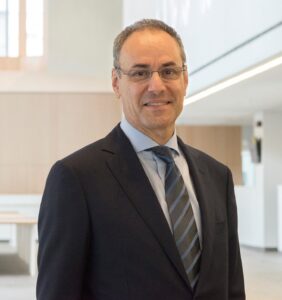 |
Luigi Lepanto, MD, MSc, FRCP(C) Co-Chair, Assessment Panel Luigi Lepanto is an Advisor to the Ministry of Health in Quebec. He was Chief Medical Officer at the Centre hospitalier de l’Université de Montréal (2017 – 2021) and Director of the Health Technology Assessment unit (2007 –2017). He is a clinical professor in the Department of Radiology, Radiation Oncology and Nuclear Medicine in the Faculty of Medicine, and at the École de Santé Publique. His interests include the impact of technology on healthcare, a systems approach that includes interprofessional collaboration, and the use of real-world data. His experience as a clinician, administrator, and academic gives him a unique perspective on the challenges faced in planning a sustainable health workforce. |
 |
Christopher S. Simpson, MD, FRCPC, FACC, FHRS, FCCS, FCAHS Co-Chair, Assessment Panel Christopher Simpson is the Executive Vice President (Medical) and Chief Medical Officer at Ontario Health. He is also a professor within the Department of Medicine at Queen’s University, an Affiliate Scientist with the Institute for Clinical Evaluative Sciences (ICES-Queen’s), and a member of the Queen’s School of Policy Studies Health Policy Council. He served as the Canadian Academy of Health Sciences President in 2020-2021, was elected as the President of the Canadian Medical Association for 2014-2015 and served as the Canadian representative at the World Medical Association. He is a nationally recognized leader in heart rhythm disease, health policy, and medical leadership. |
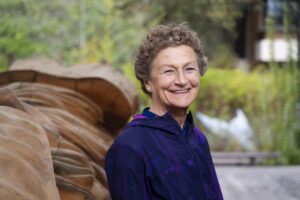 |
Cecilia Benoit, PhD, FCAHS
Cecilia Benoit, belonging to Qalipu Mi’kmaw First Nation ancestry, is a Fellow of the Pierre Elliott Trudeau Foundation, the Royal Society of Canada, and the Canadian Academy of Health Sciences. She is currently an Associate Editor of the Archives of Sexual Behavior and Sexes, Guest Editor of three other academic journals, Scientific Officer to CIHR, Academic Advisor to the Chief Public Health Officer of Canada, and Council institutional member of the RSC. She is a recipient of the Governor General’s Award in Commemoration of the Person’s Case and was recently awarded the Killam Prize and the Molson Prize – the two most distinguished research awards in Canada– in Social Sciences. The overarching goal of her scholarship is to increase social equity in health and healthcare and social inclusion of disadvantaged and unfairly treated people. Her recent voluntary activities include expert witness to the Standing Committee on Justice and Human Rights examining Human Trafficking in Canada, Academic Advisor to the Chief Science Advisor, Government of Canada and expert witness in the 2021-2022 constitutional challenge of Canada’s prostitution criminal laws. |
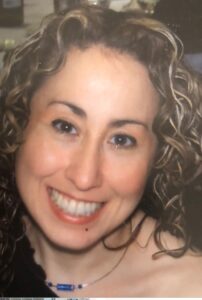 |
Jessica Campanelli
Jessica Campanelli has worked as a teacher in the adult sector at the Montreal English School Board for the last 15 years. She speaks four languages (English, French, Spanish, and Italian) and has worked with a culturally diverse immigrant population. Jessica has been a patient partner with the DCPP (Direction Collaboration et Partenariat Patient) at Université de Montréal since 2016 in such contexts as pedagogy (Faculty of Medicine), mentorship, and research. Jessica believes in a partnership approach to health care whereby the patient is an active and recognized member of the care team. She advocates that the patient perspective be more readily welcomed, recognized and valued in informing healthcare policies and practices. |
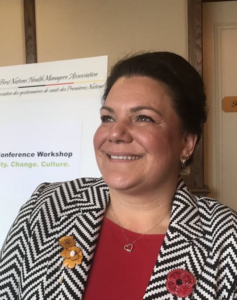 |
Marion Crowe, CFNHM, CAFM, CAPA
Marion Crowe is a proud member of the Piapot First Nation in Saskatchewan and was the founding Executive Director, now Chief Executive Officer of the First Nations Health Managers Association. Assisting community members in developing professional development opportunities and certification has always been a passion for Marion, as she was one of the founding Board of Directors for the Saskatchewan Chapter of AFOA Canada.
|
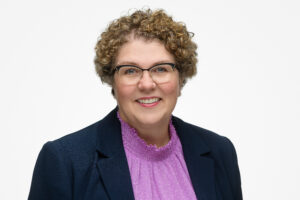 |
Suzanne Dupuis-Blanchard, PhD, RN
Suzanne Dupuis-Blanchard holds the Consortium national de formation en santé (CNFS) Research Chair on Aging, is Director of the Centre on Aging, and a Professor in the School of Nursing at the Université de Moncton. She is recognized nationally and internationally for her work in the field of aging and is the Chairperson of the National Seniors Council and immediate past president of the Canadian Association on Gerontology. Her research interests include the multiple dimensions of aging in place, including recruitment and retention of human resources for home care and home support in official language minority communities. |
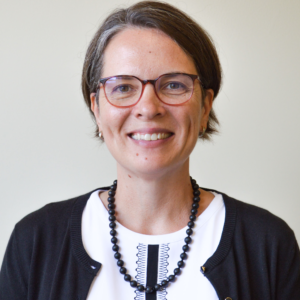 |
Mélanie Lavoie-Tremblay, MSc, PhD
Mélanie Lavoie-Tremblay is a Professor and Vice-Dean Research, innovation, and entrepreneur at the Faculty of Nursing, University of Montreal besides being a regular researcher at the Research Center of the University Institute of Mental Health of Montreal. Her research focuses mainly on attracting and retaining nurses, orientation programs for new nurses, organization of care, work, and the nursing workforce. |
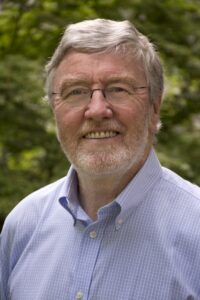 |
Michael MacEntee, LDSI, PhD, FRCD(C), FCAHS
Michael MacEntee is an Emeritus Professor at the University of British Columbia. |
 |
Linda McGillis Hall, PhD, RN, FCAHS, FAAN, FCNEI, FCAN
Linda McGillis Hall is a Professor at the Faculty of Nursing, University of Toronto, and a recognized leader in nursing health services and systems research, with a particular focus on regulated and unregulated professions (particularly nursing), health human resources, healthcare work environments, and outcomes of models of care. She was the Kathleen Russell Distinguished Professor – Nursing, University of Toronto (2013–2019), served as the Associate Dean Research at the faculty (2007–2013 & 2014–2018), Acting Dean (July–Dec 2011), and Interim Dean (July 2013–August 2014). Her current research focuses on nursing workforce retention in Canada and on evaluating the models of care implemented by healthcare organizations in response to the COVID-19 pandemic. |
 |
Ingrid Sketris, PharmD, MPA (HSA), FCAHS
Ingrid Sketris is a licensed pharmacist and Professor at the College of Pharmacy, Dalhousie University. She is a Fellow of the Canadian Society of Hospital Pharmacists, the American College of Clinical Pharmacy, the Canadian Academy of Health Sciences, and the International Society of Pharmacoepidemiology. Her research interests include pharmaceutical policies and knowledge translation; she has authored / co-authored over 200 peer-reviewed publications. From 2000–2011, she held a Chair of Health Services Research, focusing on drug-use management and policy, funded by CIHR/ CHSRF/ NSHRF. She is currently leading the Knowledge Translation Team for the Canadian Network for Observational Drug Effect Studies (www.cnodes.ca). |
 |
Arthur Sweetman, PhD
Prof. Arthur Sweetman, a leading researcher in health and labor economics, is the Ontario Research Chair in Health Human Resources and a Professor in the Department of Economics at McMaster University as well as a member of the Centre for Health Economics and Policy Analysis (CHEPA). Dr. Sweetman focuses on Ontario’s health workforce issues, including practitioner supply and demand, employment characteristics and dynamics, and occupational regulation. Throughout his academic career, Dr. Sweetman has demonstrated leadership in research, teaching, and bridging academia and policy-making. His extensive research on immigration and education policy complements his work in health human resources that involves workplace training and immigration as integral parts of workforce strategy. |
 |
Rao Tadepalli, MD
Dr. Rao Tadepalli is an emergency and family physician from Whitehorse, Yukon. A graduate of Mysore University, India, he completed his residency in Ireland, obtained a Surgery fellowship from the Royal College of Surgeons of Ireland and later received his CCFP designation in family practice. He completed the ICD.D at Rotman School of Management, U of T, and has been actively working to strengthen his profession in the North. Dr. Tadepalli served as the President and CEO of the Yukon Medical Association for almost a decade. He was also the President of the Yukon Hospital Medical Staff and a member of the Yukon Hospital Foundation. Dr. Tadepalli was on the Board of Directors of the Canadian Medical Association from 2014 to 2020. |
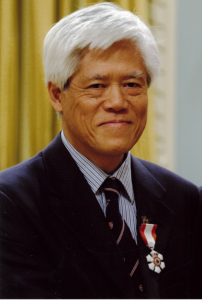 |
Kue Young, CM, MD, MSc, FRCPC, Dphil, FCAHS
Kue Young is a Professor Emeritus at the Universities of Toronto and Alberta. Dr. Young retired as Dean of the School of Public Health, University of Alberta in 2018. He devoted much of his career to northern and Indigenous health, as a family physician, health administrator, and academic researcher. For his contributions to the health of Indigenous people, he was inducted as a Member of the Order of Canada in 2010. His main interest in joining this Panel is to contribute to improving the training and deployment of public health professionals to enable Canada to better respond to future public health crises. |

Indigenous Health Workforce Committee
Indigenous Health Workforce Committee will work closely with the Assessment Panel and Working Groups to guide an evidence review that is specific to Indigenous health workforce issues, provide strategic advice and support for Indigenous engagement, develop key findings and pathways forward, and advise the Assessment Panel as they integrate findings.
Meet the Members:
 |
Marcia Anderson, MD, MPH, FRCPC Co-Chair, Assessment Panel Chair, Indigenous Health Workforce Committee Dr. Marcia Anderson is Cree-Anishinaabe and grew up in the North End of Winnipeg. Her family roots go to Peguis First Nation and Norway House Cree Nation in Manitoba. She practices both Internal Medicine and Public Health as a Medical Officer of Health with Indigenous Services Canada – Manitoba Region. She is the Vice-Dean, Indigenous Health, Social Justice and Anti-Racism and the Executive Director of Indigenous Academic Affairs in the Ongomiizwin Indigenous Institute of Health and Healing, Rady Faculty of Health Sciences, University of Manitoba. She serves as the Chair of the Indigenous Health Network of the Association of Faculties of Medicine of Canada and the Chair of the National Consortium for Indigenous Medical Education. She was recognized for her contributions to Indigenous people’s health with a National Aboriginal Achievement Award in March 2011, and was named as one of the 100 most powerful women in Canada by the Women’s Executive Network in 2018 and 2022. In 2021, she received the Royal College of Physicians and Surgeons Dr. Thomas Dignan Indigenous Health Award, and in 2022 was named the Doctors Manitoba Physician of the Year and one of Canada’s Top 100 Most Powerful Women in the Community Impact category. |
 |
Cecilia Benoit, PhD, FCAHS
Cecilia Benoit, belonging to Qalipu Mi’kmaw First Nation ancestry, is a Fellow of the Pierre Elliott Trudeau Foundation, the Royal Society of Canada, and the Canadian Academy of Health Sciences. She is currently an Associate Editor of the Archives of Sexual Behavior and Sexes, Guest Editor of three other academic journals, Scientific Officer to CIHR, Academic Advisor to the Chief Public Health Officer of Canada, and Council institutional member of the RSC. She is a recipient of the Governor General’s Award in Commemoration of the Person’s Case, and was recently awarded the Killam Prize and the Molson Prize – the two most distinguished research awards in Canada– in Social Sciences. The overarching goal of her scholarship is to increase social equity in health and healthcare and social inclusion of disadvantaged and unfairly treated people. Her recent voluntary activities include expert witness to the Standing Committee on Justice and Human Rights examining Human Trafficking in Canada, Academic Advisor to the Chief Science Advisor, Government of Canada and expert witness in the 2021-2022 constitutional challenge of Canada’s prostitution criminal laws. |
 |
Marion Crowe, CFNHM, CAFM, CAPA
Marion Crowe is a proud member of the Piapot First Nation in Saskatchewan and was the founding Executive Director, now Chief Executive Officer of the First Nations Health Managers Association. Assisting community members in developing professional development opportunities and certification has always been a passion for Marion, as she was one of the founding Board of Directors for the Saskatchewan Chapter of AFOA Canada. |
| Alisha Julien Ried
Alisha Julien Reid is a First Nations Mi’kmaq woman and the great granddaughter of the late Alexander Julien, a former keptin of the Mi’kmaq Grand Council of We’kopekwitk-Sipekne’katik in Nova Scotia. Alisha grew up on reserve in Millbrook First Nations. Alisha is a graduate from the McMaster University Midwifery Education Program and is the incoming NACM co-chair. Alisha has enjoyed the opportunity to build relationships with multiple First Nations communities throughout Alberta by providing midwifery care. In Alisha’s time out west, she was able to collaborate with multiple stakeholder groups through the initiative of growing Indigenous midwifery care. While serving on the Indigenous Maternal Health Outcomes Working Group, under Alberta Health Services Alisha was able to gain understanding that midwifery has been highlighted by both health professionals and researchers alike, as a catalyst to improve maternal and newborn outcomes. Alisha is actively involved in the education of both governmental figures and community members in promoting midwifery as a culturally safe model of care for the Indigenous families of Nova Scotia. She is currently working with Nova Scotia Native Women’s Association with the vision to decolonize birthing practices. Alisha is involved in community engagement throughout Mi’kmaw’ki. Alisha is passionate about educating community members on the possibilities of Indigenous midwifery as a pathway to sustain traditional knowledge of elders around ceremony and birth. |
|
 |
Brenda Restoule
Dr. Brenda M Restoule (Waub Zhe Kwens) is from Dokis First Nation (Ojibwa) and the Eagle Clan. She is a registered clinical psychologist and the Chief Executive Officer of the First Peoples Wellness Circle (FPWC), an Indigenous-led national organization dedicated to raising the profile of Indigenous mental wellness using Indigenous knowledge and evidence. She co-chairs the Implementation Team of FPWC, which is responsible for executing the First Nation Mental Wellness Continuum Framework and developing a support network for Mental Wellness Teams across the country. Her work ranges from providing clinical and consulting services to First Nation communities in Anishinabek territory to consultation with provincial and federal governments on Indigenous mental wellness to being an invited trainer and speaker to authoring book chapters and training manuals. Some of Dr. Restoule’s past work experiences include the Royal Commission on Aboriginal Peoples and working with federally incarcerated Indigenous women, children’s mental health, and urban and First Nation mental wellness programs. She has a special interest in cultural safety, First Nation community development and capacity building, and reducing suicide rates in First Nation communities using the First Nation knowledge and practices. |
 |
Nel Weiman, MD, FRCPC
Dr. Cornelia (Nel) Wieman is the Deputy Chief Medical Officer for the First Nations Health Authority (FNHA) in British Columbia. She is an Anishinaabe (Little Grand Rapids First Nation, Manitoba) and lives, works, and plays on the unceded territory of the Coast Salish peoples – the səl̓ílwətaʔɬ (Tsleil-Waututh), Sḵwx̱wú7mesh (Squamish), and xʷməθkʷəy̓əm (Musqueam) Nations. Dr. Wieman is serving as the President of the Indigenous Physicians Association of Canada (IPAC) since 2016. She completed her medical degree and psychiatry specialty training at McMaster University. Canada’s first female Indigenous psychiatrist, Dr. Wieman has more than 20 years of clinical experience in working with Indigenous people in both rural/reserve and urban settings. Her previous activities include co-directing an Indigenous health research program in the Dalla Lana School of Public Health at the University of Toronto and the National Network for Indigenous Mental Health Research, being Deputy Chair of Health Canada’s Research Ethics Board, and serving on CIHR’s Governing Council. She has also worked and taught in many academic settings, has chaired national advisory groups within First Nations Inuit Health Branch – Health Canada, and has served as a Director on many boards, including the Indspire Foundation and Pacific Blue Cross. She sits on the Executive Committee of the National Consortium on Indigenous Medical Education (NCIME), and has recently been appointed to the BC Provincial Task Team charged with ensuring the implementation of recommendations arising from the “In Plain Sight” report. |

Deployment & Service Delivery Working Group
Meet the Members:
 |
Luigi Lepanto, MD, MSc, FRCP(C) Co-Chair, Assessment Panel Chair, Deployment & Service Delivery Working Group Luigi Lepanto is an Advisor to the Ministry of Health in Quebec. He was Chief Medical Officer at the Centre hospitalier de l’Université de Montréal (2017 – 2021) and Director of the Health Technology Assessment unit (2007 –2017). He is a clinical professor in the Department of Radiology, Radiation Oncology and Nuclear Medicine in the Faculty of Medicine, and at the École de Santé Publique. His interests include the impact of technology on healthcare, a systems approach that includes interprofessional collaboration, and the use of real-world data. His experience as a clinician, administrator, and academic gives him a unique perspective on the challenges faced in planning a sustainable health workforce. |
 |
Raisa Deber, PhD, FCAHS
Raisa B. Deber, a Professor at the University of Toronto, is an internationally recognized expert on Canadian health policy. She is renowned for her ability to analyze major health policy issues at local, provincial, national, and international levels, and to develop novel conceptual frameworks backed by data analysis, which generated policy-relevant conclusions that have significantly influenced health policy theory and practice. Through scholarship, mentorship, and championing of multidisciplinary teamwork, she has enhanced our knowledge of shared decision making, the public–private mix in financing and delivering health care, health human resources, and home and community care. |
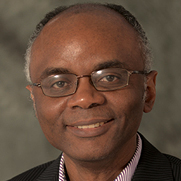 |
Carl Ardy Dubois, PhD
Carl Ardy Dubois is a full professor and Dean of the School of Public Health at Université de Montréal. He received his Ph.D. in Public Health from the Université de Montréal. He had previously completed his M.D. and pursued postgraduate studies in health services administration, epidemiology and statistics. He did postdoctoral studies at the London School of Hygiene and Tropical Medicine (U.K.) under a collaborative program with the European Observatory on Health Systems and Policies. Dr. Dubois is a Principal Scientist at the Centre for Public Health Research (CReSP) and the Centre for Interuniversity Research and Analysis of Organizations (CIRANO). Before joining the School of Public Health, Dr. Dubois was a professor in the Université de Montréal’s faculty of nursing. For 12 years, as a research fellow with the Fonds de recherche du Québec’s Health Fund (FRQS), he conducted a research program on the analysis of organizational models, human resources management and performance evaluation in health services. He continues to work on a number of projects in these fields. Recognition for his contributions has included the 2014 Peter Reizenstein Award from the International Society for Quality in Health Care (ISQua). |
 |
Suzanne Dupuis-Blanchard, PhD, RN
Suzanne Dupuis-Blanchard holds the Consortium national de formation en santé (CNFS) Research Chair on Aging, is Director of the Centre on Aging, and a Professor in the School of Nursing at the Université de Moncton. She is recognized nationally and internationally for her work in the field of aging and is the Chairperson of the National Seniors Council and immediate past president of the Canadian Association on Gerontology. Her research interests include the multiple dimensions of aging in place, including recruitment and retention of human resources for home care and home support in official language minority communities. |
 |
Brian Hodges, MD, PhD, FRCPC, FCAHS
Brian Hodges is the Executive Vice-President of Education and Chief Medical Officer at University Health Network and Professor in the Temerty Faculty of Medicine at the University of Toronto President-Elect, Royal College of Physicians and Surgeons of Canada. Brian is a practicing psychiatrist and teacher. His research and writing focus on assessment, competence, compassion, and the future of the health professions. Brian earned an undergraduate degree in Psychology, followed by an MD at Queen’s University in Kingston, Ontario. He then pursued a residency in Psychiatry and a fellowship in medical education at the University of Toronto. He earned a Master’s and then a PhD in Education at the Ontario Institute for Studies in Education in Toronto. He also earned a Diploma in Health Economics and Social Sciences from the University of Paris. |
 |
Lorelei Lingard, PhD, FCAHS
Lorelei Lingard is a Professor at the Department of Medicine and Centre for Education Research & Innovation, Schulich School of Medicine & Dentistry, Western University. Her 25-year research career spans studying team collaboration and communication in various healthcare settings, including operating rooms, intensive care units, internal medicine, pediatrics inpatient wards, and adult rehabilitation teams. Her research focuses on understanding how language shapes teamwork, particularly involving interprofessional collaboration. Dr. Lingard has championed the concept of “collective competence” by pushing health professions education beyond its exclusive focus on individual competence — which is necessary but insufficient for quality care. |
 |
Sarah Newbery, MD
Dr. Sarah Newbery is the inaugural Associate Dean of Physician Workforce Strategy at the Northern Ontario School of Medicine University. In this role, she works with faculty, communities, and other organizations to support initiatives to enhance the physician workforce for Northern Ontario. A rural generalist family physician of over 25 years in Marathon, she has held leadership roles in primary care and the hospital sector, is a past president of the Ontario College of Family Physicians, and a past VP clinical of the NW LHIN. She brings her knowledge of Northern Ontario and the health care system to her service on many regional and provincial committees looking at health human resources. |
 |
Ingrid Sketris, PharmD, MPA (HSA), FCAHS
Ingrid Sketris is a licensed pharmacist and Professor at the College of Pharmacy, Dalhousie University. She is a Fellow of the Canadian Society of Hospital Pharmacists, the American College of Clinical Pharmacy, the Canadian Academy of Health Sciences, and the International Society of Pharmacoepidemiology. Her research interests include pharmaceutical policies and knowledge translation; she has authored / co-authored over 200 peer-reviewed publications. From 2000–2011, she held a Chair of Health Services Research, focusing on drug-use management and policy, funded by CIHR/ CHSRF/ NSHRF. She is currently leading the Knowledge Translation Team for the Canadian Network for Observational Drug Effect Studies (www.cnodes.ca). |
 |
Marie-Andrée Ulysse, inf., MScAdm
Marie-Andrée Ulysse has a Bachelor of Science in Nursing and a Master’s in organizational and services administration. Working in management for the past several years, Ms. Ulysse has acquired a far-reaching knowledge of the health and social services network, including the areas of human resources, financial management, facilities and supplies management and the organization of services. She is currently the administrative director of the Université de Montréal’s faculty of nursing. Ms. Ulysse chairs the board of the Ordre régional des infirmières et infirmiers Montréal/Laval (the regional section of the order of nurses) and is also a member of the board of the Federation of Quebec Alzheimer Societies. |
 |
Kue Young, CM, MD, MSc, FRCPC, DPhil, FCAHS
Kue Young is a Professor Emeritus at the Universities of Toronto and Alberta. Dr. Young retired as Dean of the School of Public Health, University of Alberta in 2018. He devoted much of his career to northern and Indigenous health, as a family physician, health administrator, and academic researcher. For his contributions to the health of Indigenous people, he was inducted as a Member of the Order of Canada in 2010. His main interest in joining this Panel is to contribute to improving the training and deployment of public health professionals to enable Canada to better respond to future public health crises. |

Support & Retention Working Group
Meet the Members:
 |
Christopher S. Simpson, MD, FRCPC, FACC, FHRS, FCCS, FCAHS Co-chair, Assessment Panel Chair, Support & Retention Working Group Christopher Simpson is the Executive Vice President (Medical) and Chief Medical Officer at Ontario Health. He is also a professor within the Department of Medicine at Queen’s University, an Affiliate Scientist with the Institute for Clinical Evaluative Sciences (ICES-Queen’s), and a member of the Queen’s School of Policy Studies Health Policy Council. He served as the Canadian Academy of Health Sciences President in 2020-2021, was elected as the President of the Canadian Medical Association for 2014-2015, and served as the Canadian representative at the World Medical Association. He is a nationally recognized leader in heart rhythm disease, health policy, and medical leadership. |
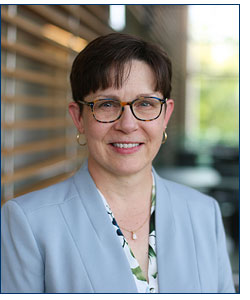 |
Marcia Finlayson, PhD, OT Reg, FCAHS
Dr. Marcia Finlayson is a registered Occupational Therapist and a Professor in the School of Rehabilitation Therapy, Queen’s University at Kingston. Her research program aims to support people with multiple sclerosis as they seek and use rehabilitation, wellness, and home-based services to pursue health, well-being, and aging-in-place. She has been active in documenting patterns and predictors of health service use and unmet need among people with multiple sclerosis, particularly as they age. She is a Fellow of the Canadian Academy of Health Sciences and the Canadian Association of Occupational Therapists. |
 |
Kevin Kelloway, PhD
Kevin Kelloway is Professor of Organizational Psychology at Saint Mary’s University and holds the Canada Research Chair in Occupational Health Psychology. He is a Fellow of the Association for Psychological Science, the Canadian Psychological Association, the International Association for Applied Psychology, and the Society for Industrial/Organizational Psychology. He has been recognized as a distinguished Psychologist in Management, is credited for outstanding contributions to Canadian I/O Psychology, and received Presidential Recognition as a Scientist-Practitioner (SIOP). In 2016, Dr. Kelloway served as President of the Canadian Psychological Association. He maintains an active consulting practice focused on issues related to leadership and human resource management. |
 |
Mélanie Lavoie-Tremblay, MSc, PhD
Mélanie Lavoie-Tremblay is a Professor and Vice-Dean Research, innovation, and entrepreneuriat at the Faculty of Nursing, University of Montreal besides being a regular researcher at the Research Center of the University Institute of Mental Health of Montreal. Her research focuses mainly on attracting and retaining nurses, orientation programs for new nurses, organization of care, work, and the nursing workforce. |
 |
Linda McGillis Hall, PhD, RN, FCAHS, FAAN, FCNEI, FCAN
Linda McGillis Hall is a Professor at the Faculty of Nursing, University of Toronto, and a recognized leader in nursing health services and systems research, with a particular focus on regulated and unregulated professions (particularly nursing), health human resources, healthcare work environments, and outcomes of models of care. She was the Kathleen Russell Distinguished Professor – Nursing, University of Toronto (2013–2019), served as the Associate Dean Research at the faculty (2007–2013 & 2014–2018), Acting Dean (July–Dec 2011), and Interim Dean (July 2013–August 2014). Her current research focuses on nursing workforce retention in Canada and on evaluating the models of care implemented by healthcare organizations in response to the COVID-19 pandemic. |
 |
Kwame McKenzie, MD
Dr Kwame McKezie is the CEO of Wellesley Institute, a full Professor at University of Toronto, Director of Health Equity at the Centre for Addiction and Mental Health, and a practicing Psychiatrist. He has worked across a broad spectrum to improve mental health, population health, and health services for three decades. He has worked as an adviser to health, housing, education, and social services ministers and is a member of Canada’s National Advisory Council on Poverty. He has published over 260 peer papers and 6 books. He has won numerous awards, including the African Canadian Achievement Award for Science, the Dominican of Distinction Award, and a Harry Jerome Award. |
 |
Brenda Restoule
Dr. Brenda M Restoule (Waub Zhe Kwens) is from Dokis First Nation (Ojibwa) and the Eagle Clan. She is a registered clinical psychologist and the Chief Executive Officer of the First Peoples Wellness Circle (FPWC), an Indigenous-led national organization dedicated to raising the profile of Indigenous mental wellness using Indigenous knowledge and evidence. She co-chairs the Implementation Team of FPWC, which is responsible for executing the First Nation Mental Wellness Continuum Framework and developing a support network for Mental Wellness Teams across the country. Her work ranges from providing clinical and consulting services to First Nation communities in Anishinabek territory to consultation with provincial and federal governments on Indigenous mental wellness to being an invited trainer and speaker to authoring book chapters and training manuals. Some of Dr. Restoule’s past work experiences include the Royal Commission on Aboriginal Peoples and working with federally incarcerated Indigenous women, children’s mental health, and urban and First Nation mental wellness programs. She has a special interest in cultural safety, First Nation community development and capacity building, and reducing suicide rates in First Nation communities using the First Nation knowledge and practices.
|
 |
Christian Rochefort, MSc, PhD
Dr Christian Rochefort is an Associate Professor of Nursing at the Université de Sherbrooke. His research program comprises two interrelated research axes. In the first, he works on developing and validating novel measures of quality and safety of patient care in various clinical settings. He has developed expertise in using electronic clinical and administrative data as well as advanced data mining techniques. In the second axis, he examines the impact of various nurse staffing practices (e.g., nurse-to-patient ratio, the use of overtime hours) on the quality and safety of patient care in hospitals. |
 |
Rao Tadepalli, MD
Dr. Rao Tadepalli is an emergency and family physician from Whitehorse, Yukon. A graduate of Mysore University, India, he completed his residency in Ireland, obtained a Surgery fellowship from the Royal College of Surgeons of Ireland and later received his CCFP designation in family practice. He completed the ICD.D at Rotman School of Management, U of T, and has been actively working to strengthen his profession in the North. Dr. Tadepalli served as the President and CEO of the Yukon Medical Association for almost a decade. He was also the President of the Yukon Hospital Medical Staff and a member of the Yukon Hospital Foundation. Dr. Tadepalli was on the Board of Directors of the Canadian Medical Association from 2014 to 2020.
|
 |
Sunita Vohra, MD MSc FRCPC FCAHS
Dr. Sunita Vohra is a Clinician Scientist and a Centennial Professor in the Faculty of Medicine & Dentistry at the University of Alberta, with training in pediatrics, clinical pharmacology, and clinical epidemiology. She leads a successful research program, securing over $24.9M ($14.5M as Principal Investigator and $2.2M in prizes/awards) and has published more than 230 peer-reviewed journal articles and 27 book chapters. Dr. Vohra has done research in Canadian health workforce planning; the vast majority of her work is interdisciplinary, inclusive of both complementary and conventional healthcare providers, and she brings this experience to the CAHS HHR Assessment. |

Planning & Development Working Group
Meet the Members:
 |
Ivy Bourgeault, PhD, FCAHS Co-chair, Assessment Panel Chair, Planning & Development Working Group Ivy Bourgeault is recognized nationally and internationally for her research and scholarship on health workforce policy, health-worker migration, midwifery, and maternity care. She holds a University of Ottawa Research Chair in Gender, Diversity and the Professions, having previously held the CIHR Chair in Gender, Work and Health Human Resources, the CIHR and Health Canada Research Chair in Health Human Resources Policy. She co-founded the bilingual Canadian Health Workforce Network and the Canadian Society for the Sociology of Health. Her dedication to effective knowledge exchange is evidenced by a number of consultations to Provincial Ministries of Health, Health Canada, the Pan American Health Organization, and the World Health Organization. |
 |
Jessica Campanelli
Jessica Campanelli has worked as a teacher in the adult sector at the Montreal English School Board for the last 15 years. She speaks four languages (English, French, Spanish, and Italian) and has worked with a culturally diverse immigrant population. Jessica has been a patient partner with the DCPP (Direction Collaboration et Partenariat Patient) at Université de Montréal since 2016 in such contexts as pedagogy (Faculty of Medicine), mentorship, and research. Jessica believes in a partnership approach to health care whereby the patient is an active and recognized member of the care team. She advocates that the patient perspective be more readily welcomed, recognized and valued in informing healthcare policies and practices. |
 |
Eileen Hutton, RM, PhD, DSc(HC), FCAHS
Dr. Eileen K Hutton is a Professor Emeritus in the Department of Obstetrics at McMaster University, a former Assistant Dean and Director of the Midwifery Education Program, and the founding Scientific Director of the McMaster Midwifery Research Centre. Dr Hutton played a key role in regulating the midwifery profession in Ontario, where she practiced as a registered midwife. She was Canada’s foremost researcher in midwifery and has contributed many scientific publications on clinical practices. She was the first Midwife Professor ever appointed in the Netherlands in the Department of Midwifery Science, VU University Medical Center, Amsterdam. |
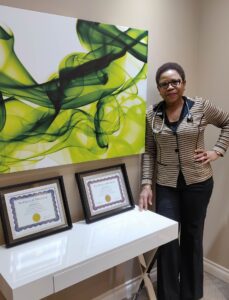 |
Ngozi Ikeji, MD
Dr. Ikeji completed her medical school at the College of Medicine, University of Lagos and her general/pediatric surgery residency at the University of Nigeria Teaching Hospital. Furthermore, she did two years of fellowship training in plastic surgery at the University of Alberta. She continued as a faculty in the Department of Anatomy and Cell Biology at the University of Alberta, teaching medical and dental students gross anatomy, neuroanatomy, and histology. Dr. Ikeji has been a practicing generalist in the Yukon for 25 years; her practices include GP obstetrics and gynecology, emergency room medicine, hospital inpatient care, and office outpatient practice. Additionally, Dr. Ikeji has been involved with healthcare administration as a member of the Yukon Medical Association for over 20 years and the Yukon representative on the Board of Directors of the Canadian Medical Association for six years. Prior to that, she was a member of the Council on Health Care and Promotion of the Canadian Medical Association for six years. Locally, she has served on different hospital committees and was the Co-Chair of the Collaborative Care Team of the Yukon Department of Health. Dr. Ikeji, at the Whitehorse General Hospital, performs facial surgeries, including blepharoplasty and removal of the face, head, and neck lesions. Dr. Ikeji is passionate about ensuring that health care planning and delivery align with and incorporate social determinants of health. Her contribution with regards to this was effective in insuring that Social Determinants of Health became the Theme for Canadian Medical Association’s General Council Meeting in Yellowknife in 2012. |
 |
Judy Linton, PhD, CGC
Judy Linton is the Chief Nursing Executive & Clinical Institutes and Quality Programs Executive, Ontario Health, working to advance evidence-based clinical excellence, help set standards that drive consistency, and enable the delivery of quality care and positive health outcomes. Judy began her career as a registered nurse in critical care and has since held key clinical care leadership positions in academic centres and community hospitals. She has held leadership positions with provincial agencies, including Cancer Care Ontario and the Ontario Renal Network, as well as clinical operational and consulting roles. Judy brings vast expertise to Ontario Health’s Mental Health and Addictions Centre of Excellence, as well as clinical programs that include palliative care and more. Her focus is on providing high-quality care and the best possible patient and family experience. Judy values collaborative relationships with clinicians to plan and deliver evidence-based care. |
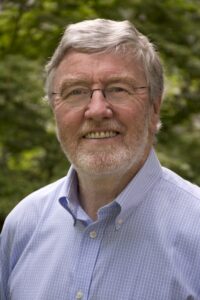 |
Michael MacEntee, LDSI, PhD, FCAHS, FRCD(C)
Michael MacEntee is an Emeritus Professor at the University of British Columbia. |
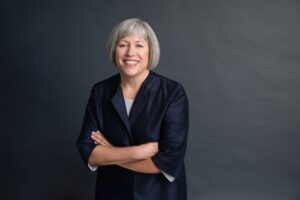 |
Geneviève Moineau, MD, FRCPC
Dr. Geneviève Moineau, President and CEO of The Association of Faculties of Medicine of Canada, is an accomplished academic leader in medical education and a well-recognized expert in physician resource planning. She advocates for reducing the number of unmatched Canadian medical graduates (uCMG); she authored a report that was responsible for policy change resulting in the uCMG reduction by over 50%. She Co-Chairs the Committee on Health Workforce Physician Resource Planning Advisory Committee and Chairs the Canadian Medical Forum Physician Resource Planning Working Group. On behalf of the AFMC, she has met with ministers and House of Commons Standing Committees to increase the physician training capacity to respond to the needs of Canadians. |
 |
Arthur Sweetman, PhD
Prof. Arthur Sweetman, a leading researcher in health and labor economics, is the Ontario Research Chair in Health Human Resources and a Professor in the Department of Economics at McMaster University as well as a member of the Centre for Health Economics and Policy Analysis (CHEPA). Dr. Sweetman focuses on Ontario’s health workforce issues, including practitioner supply and demand, employment characteristics and dynamics, and occupational regulation. Throughout his academic career, Dr. Sweetman has demonstrated leadership in research, teaching, and bridging academia and policy-making. His extensive research on immigration and education policy complements his work in health human resources that involves workplace training and immigration as integral parts of workforce strategy. |
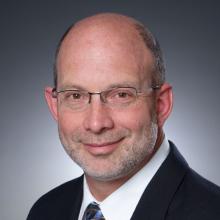 |
Jeffrey Wichtel, BVSc, PhD, ACT
Jeff Wichtel has been the Dean of the Ontario Veterinary College at the University of Guelph since 2015, besides being a Professor in the Department of Population Medicine at the University of Guelph. He obtained his BVSc and PhD degrees from Massey University in New Zealand and is board-certified by the American College of Theriogenologists. He has taught at Iowa State University, North Carolina State University, Massey University, and the University of Prince Edward Island. At different times, Jeff served as the Department Chair, Director of Animal Resources, Chair of the Sir James Dunn Animal Welfare Centre, and the Associate Dean, Graduate Studies and Research at the Atlantic Veterinary College before taking up his role as the Dean at OVC. Wichtel is a well-known researcher and author in food animal nutrition, disease, production, and reproduction. He has contributed to development projects related to livestock agriculture and food security in Kenya and Haiti. He has authored more than 150 publications on animal nutrition, reproduction and disease, livestock production and veterinary education. Jeff is passionate about veterinary education and One Health, and the roles they can play in improving the health of people, animals, and the planet. Maureen and Jeff are proud parents of two daughters, Jocelyn and Nicola, both practicing veterinarians. |

